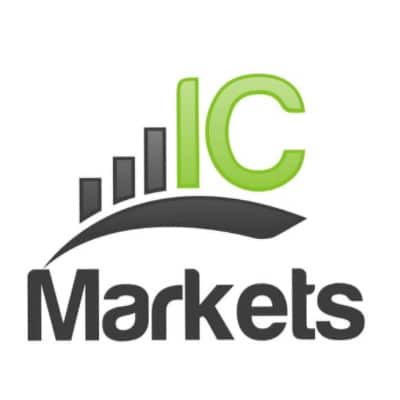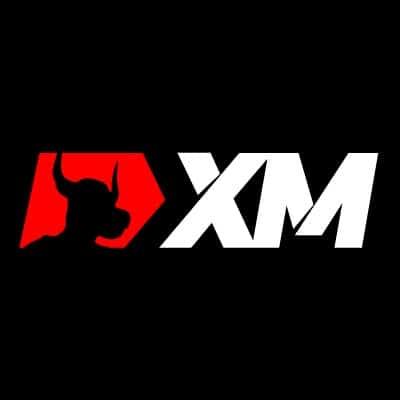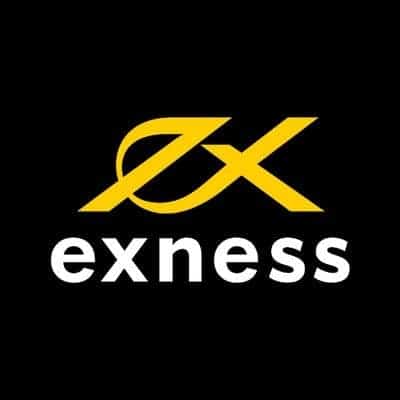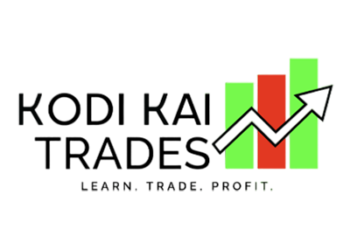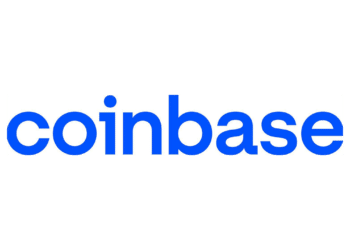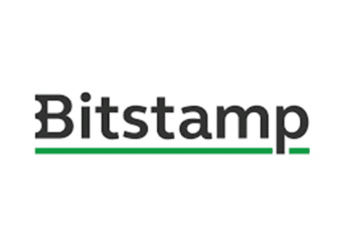Forex brokers provide a means to open and close trades on the exchange markets. The trades placed by a trader on the trading platform are carried out to the brokerage, which executes it through the liquidity providers. With the developments in the financial industry, various brokers have emerged that offer different conditions to traders that may suit their needs better.
Zero spread forex brokers allow traders to enter the markets without covering the costs of spreads. They may have to pay a certain commission that can depend on the position size. This type of trading model is perfect for those who use a scalping approach of HFT algorithms. Our article will list all the best zero spread forex brokers that present the top trading conditions in the markets.
Top 5 Zero Spread Forex Brokers for 2022
With a range of options available for investors, it can be hard to choose the correct one. There can be issues such as regulation, platform, customer support, etc., to consider. Considering all the factors, the following are some of the top exchanges in this sector:
| Broker | Founded | HQ | Regulations | Platforms | Markets | Deposit from | Leverage up to | Website |
 | 2007 | Australia | ASIC, FCA, CySEC | MT4, MT5, cTrader | Forex, Indices, Commodities, Stocks, Bonds, Futures, Crypto | $250 | 1:500 | visit |
 | 2010 | Australia | ASIC, FCA, DFSA, CySEC, BaFin, SCB, CMA | MT4, MT5, cTrader, TradingView | CFDs (Forex, Indices, Commodities, Crypto, ETFs, Shares) | $200 | 1:30 | visit |
 | 2009 | Cyprus | CySEC, FCA, ASIC | MT4, MT5 | Forex, Indices, Commodities, Stocks, Metals | $5 | 1:888 | visit |
 | 2008 | Cyprus | FCA, CySEC, FSA, FSCA | MT4, MT5, WebTrader | Forex, Indices, Stocks, Crypto, Metals, Energies | $10 | 1:200 | visit |
 | 2014 | UK | FCA, CySEC, FSCA, FSA | MT4, WebTrader | Forex, Stock Indices, Bonds, Metals | $100 | 1:500 | visit |
These brokers have by far the lowest commissions and best trading models for retail and professional traders.
What is a zero spread account in forex?
Spreads on any currency pair are the cost the trader has to pay or cover when he places a position. When a market participant buys, the order is carried out on the asking price, and when he sells, the execution is at the bid. The difference between the bid and ask is called the spread. To understand better, consider a trader who goes long on EURUSD at 1.13500, where the spread is one pip. To enter a breakeven condition, he has to cross 1.13510.
While trading on a zero spread account, there are no spreads to cover. To make up for the execution costs, the brokers use a commission model with a fixed fee based on the lost size for each position. For example, consider the same trade on EURUSD at 1.13500. Here the trade will execute at 1.13500 directly as there is no difference in the bid and ask. Brokers can charge anywhere from $5 to $15 per lot, depending on the instrument you are trading. To break even with a $7 fee, the trade will have to go above 1.13505 for a buy position.
How is a zero spread account useful in forex?
There are several benefits to using a zero spread account. We have listed some of the important ones below:
- Scalpers. Traders who use scalping methods to trade the markets can find these accounts useful. Algorithms that use high-frequency trading models also benefit.
- Spreads. There is no need to worry about the difference between the bid and ask getting high at volatile hours. The spreads remain the same for most of the time.
- Precision. It is possible to enter the markets exactly at the desired price. Traders do not have to compute the difference between bid and ask to calculate the spreads for a particular currency pair. They only have to remember the execution fee.
- Commissions. If we contrast the fees that each position has to incur, we find out that the amount of pips required to get into breakeven for a zero spread account is less. In other words, the trading costs are lower.
- Execution. The speed at which the orders are carried out is significantly better than brokers that use the standard model.
Things to consider before choosing a zero spread forex broker
Choosing a forex broker can be tricky for both beginner and amateur traders. Let us discuss some important factors traders should consider before selecting the best zero spread brokerage.
Regulation
A highly regulated broker will make sure not to double-cross their clients. They will hand out the deposits, withdrawals, and trades professionally and make sure to provide the best customer support. There are several top regulatory authorities that traders should watch for when looking for the best zero spread forex broker.
The United States. National Futures Association (NFA) and Commodity Futures Trading Commission (CFTC)
The United Kingdom. Financial Conduct Authority (FCA) and Prudential Regulation Authority (PRA)
Australia. Australian Securities and Investment Commission (ASIC)
Cyprus. Cyprus Securities and Exchange Commission (CySEC)
Germany. Bundesanstalt für Finanzdienstleistungsaufsicht (BaFIN)
France. Autorité des Marchés Financiers (AMF)
Canada. Investment Information Regulatory Organization of Canada (IIROC)
Switzerland. Swiss Federal Banking Commission (SFBC)
Commissions
Trading costs or commissions should be kept at the lower end. Good brokers will not charge more than $10 per lot for both buy and sell trades. There should also be no charges for making a deposit and withdrawal on an account.
Deposit and withdrawals
There should be a variety of cash in and out methods available to traders. Bank transfer, credit/debit cards, e-wallets, and cryptocurrency are common ways to make a deposit and withdrawal. Your broker should process your payment as soon as you give it a go.
Platforms
A good trading platform will ensure that your trades reach the broker without any hiccups and all the executions are as smooth as possible. It should present a variety of orders and access to the best charting tools.
Mobile trading apps must also be available to help traders trade on the go or monitor their currency trades.
Available instruments
The broker should have the trading instruments that you desire. Most brokers nowadays allow traders to trade cryptos, currencies, stocks, and indexes.
The execution speed and liquidity must also be perfect, so your orders do not get hanged out in the middle. This is especially important for those looking to implement their robots in trading.
Customer support
Customer support should be readily available 24/5 or 24/7. Good brokers offer support through various channels, including telephone, email, live chat, and social media. It should be responsive, and the agents should solve your issue immediately or as soon as possible.
Which are the best zero spread forex brokers?
The top zero spread forex brokers offer the best facilities to traders on all terms. As mentioned before, high-tier regulatory authorities regulate them. Investors can trade using such brokerages with peace of mind.
IC Markets: All-rounder
IC Markets is regulated by the Australian Securities and Investments Commission (ASIC), Financial Services Authority of Seychelles, and Cyprus Securities and Exchange Commission (CySec). The broker offers CFDs on forex, stocks, indices, commodities, bonds, and equities. The company was first founded in 2007 and has its headquarters in Sydney, Australia.
The raw spread account is available for traders who like little to no spreads and enjoy low commissions of $7 per round lot. The trading services can be availed by signing up and verifying your credentials. Multiple deposit and withdrawal methods, including PayPal, e-wallets, credit/debit card, wire transfer, etc. (IC Markets Review)
Advantages
- High-speed execution is available through the raw spread account
- Offers one of the lowest commissions in the markets
- There are multiple deposit and withdrawal methods traders can use
- Has a good collection of PAMM accounts
- The company offers a VPS service for traders who like low latency on their executions
Disadvantages
- It does not allow high-frequency algorithms on MetaTrader
- It may not be available in some countries due to regulation
Pepperstone: Quality execution
Pepperstone is regulated by Financial Conduct Authority (FCA), the Australian Securities and Investments Commission (ASIC), and the Dubai Financial Services Authority (DFSA). The company offers CFDs on forex, cryptos, shares, ETFs, indices, commodities, and currency indices under their portfolio. A dedicated analysis section on the website offers information on market analysis, tools, and an economic calendar. The company provides MetaTrader 4/5, cTrader, and TradingView as the major trading platforms.
There is a razor option in trading accounts that offers institutional grade spreads with commissions from 7 Australian dollars. The average spread on EURUSD ranges from 0 to 3 points. This type of portfolio is best for scalpers and also traders. Traders can start trading with a minimum deposit amount of $200. (Pepperstone Review)
Advantages
- The razor account is a good option for scalpers
- Several top tier authorities regulate the company
- They offer a good customer support
- Trading accounts are available in several base currencies
- Multiple platforms can be used for trading
Disadvantages
- Doesn’t provide services to US customers
- Account verification may take some time
XM: Multiple account options
XM was founded in 2009 and is regulated by the International Financial Services Commission IFSC in Belize. The company offers multiple features with their portfolio, including personal account managers, free access to market research, 24/5 live help, etc. Traders can use the MT 4, 5, and the XM platform to place their trades. The available instruments are forex, commodities, indices, stocks, metals, and energies.
XM offers zero spread account, and also ultra-low account is famous for providing competitive spreads starting as low as 0.6 pips on EURUSD with no commission charged. Traders have the ability to choose the micro option if they don’t like taking high risks. Swap-free options are also available for those who prefer interest-free trading. (XM Review)
Advantages
- Micro accounts are available for maintaining a low risk
- Multiple instruments are available under a single platform
- Traders can use multiple platforms for trading
- Trading accounts are available in several base currencies
Disadvantages
- A single authority only regulates the company
- The maximum number of open positions are restricted to 300
Exness: True zero spread trading
Founded in 2008, Exness comes under the regulation of Financial Services Authority (FSA), Central Bank of Curaçao and Sint Maarten (CBCS), Financial Services Commission (FSC), Cyprus Securities and Exchange Commission (CySEC), and Financial Conduct Authority (FCA). The company lists 107 currency pairs, 81 stocks and indices, 13 cryptocurrencies, and 12 metals and energies in its portfolio. Multiple tools such as market analysis, converter, and VPS are available. The withdrawals don’t require any manual intervention and are made within seconds.
The company offers zero spreads on 30 currency pairs 95% of the trading day. Traders can use the account with unlimited leverage and pay a low commission of $7 per round lot. Orders are executed at market price, and the portfolio has a swap-free option as well. (Exness Review)
Advantages
- They offer zero spreads on 30 currency pairs
- Withdrawals are processed instantly
- The commissions are quite low at $3.5 per side
- Many top tier authorities regulate them
Disadvantages
- They offer only two trading platforms, i.e., MT 4 and 5
- The maximum lot size is restricted from 21:00 to 06:59 GMT at 20
Tickmill: Zero spread account with low commissions
Tickmill was established recently in 2014 and came under the regulation of Seychelles Financial Services Authority (FSA) Financial Conduct Authority (FCA), Cyprus Securities and Exchange Commission (CySEC), Labuan Financial Services Authority (Labuan FSA), and Financial Sector Conduct Authority (FSCA). The broker is the best choice for traders who prefer ultra-low trading costs with minimal spreads. The VIP accounts charge only a single dollar commission per side on a single lot. Traders can use USD, EUR, and GBP as base currencies with the option to use a leverage of up to 1:500.
There are various educational tools at one’s disposal available on the website. The deposit and withdrawal methods are restricted to an only bank transfer, Visa/Mastercard, and Skrill. The company provides several promotions for new and current traders. (Tickmill Review)
Advantages
- They offer the tightest commissions in the company
- A range of accounts are available to choose from
- The account opening process is simple
- Demo accounts are available for practice
Disadvantages
- Limited deposit and withdrawal methods
- Trading is only available with MT4
FAQs about zero spread forex brokers
Can I trade with no spread?
Zero spread accounts are perfect for all traders as they offer fast execution and minimal costs. Market participants who use a scalping approach or employ HFT algorithms generally use such types of portfolios. For example, a trader who uses a night scalping technique may prefer using a zero spread broker as standard accounts have typically high costs, which can eat up the profits.
What is the difference between a zero spread account and a standard account?
Standard accounts have a high spread which can increase the trading costs. On the other hand, zero spread accounts have no difference between the bid and ask and cover the fees by charging a fixed commission on each trade. The latter is also favorable for traders that require low latency on their executions.
The spread changes in the standard account can lead to a bad fill on a particular trade. Zero spread accounts, on the other hand, allow orders to be filled on the exact market price.
Should you consider a zero spread account?
Zero spread accounts should be at the top of your list as they have numerous benefits that far outweigh the other portfolios. Furthermore, they do not require a high amount of deposit in most cases which can be beneficial for both beginners and professionals.



